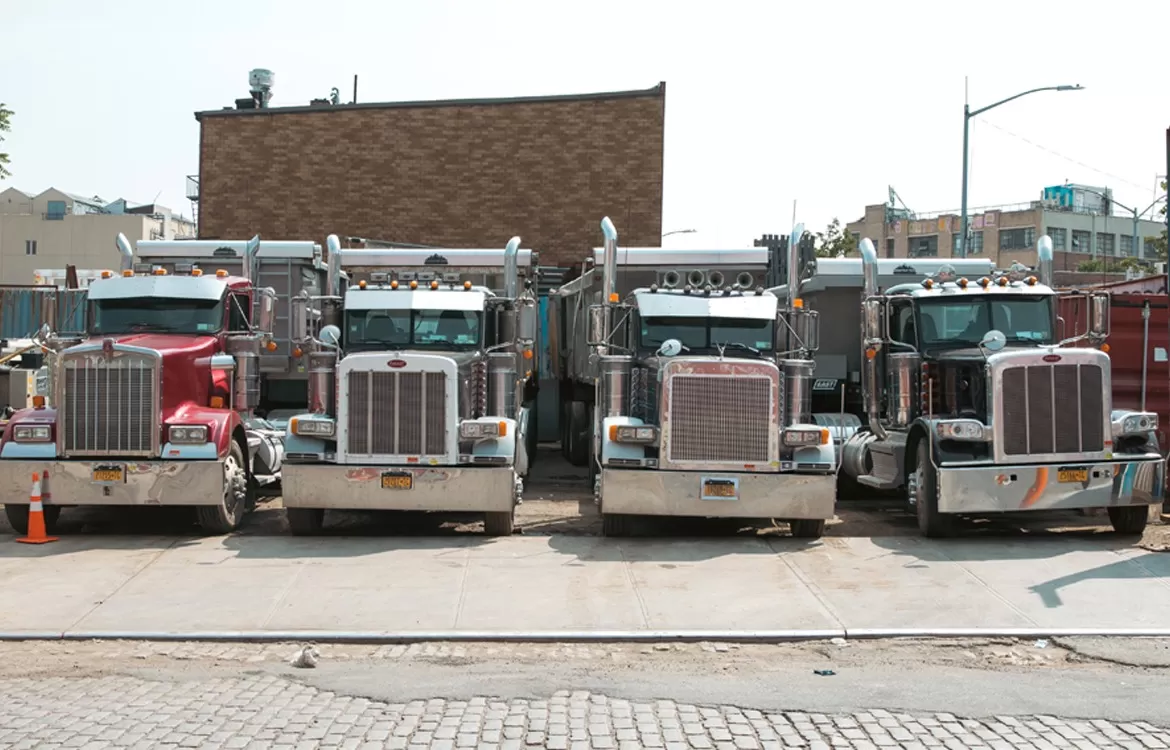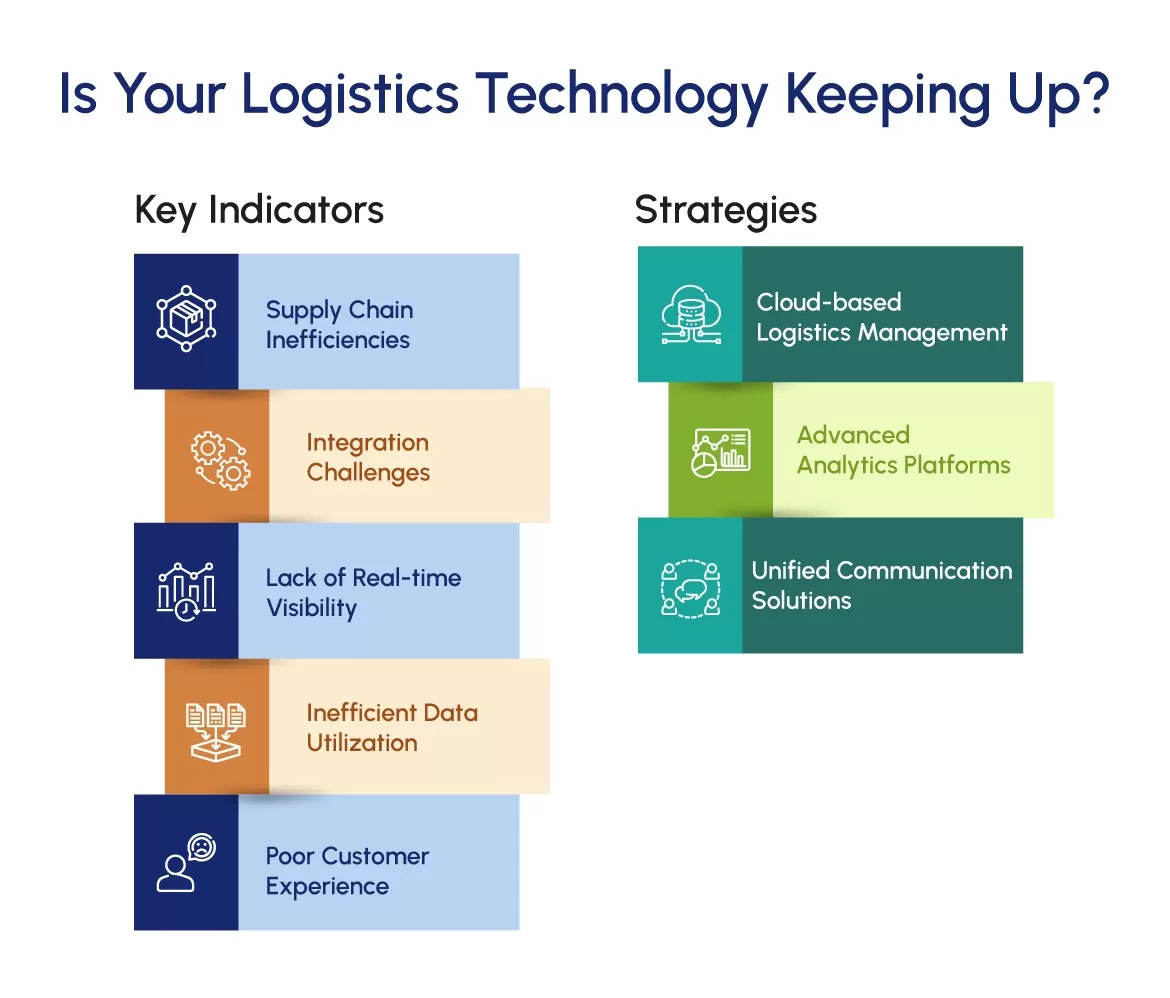
In the fast-paced and complex logistics landscape of America, where supply chains span vast distances and diverse industries, having the right technology is paramount. The logistics industry in the United States is heavily reliant on efficient supply chain solutions to ensure timely deliveries, optimize operations, and remain competitive.
However, not all logistics software is adaptable to the current challenges of the American market.
9 Signs Your Logistics Software is Inefficient
1. Is Your Supply Chain Solution Inflexibility in its Scalability?
The American logistics industry experiences seasonal fluctuations and sudden spikes in demand, such as during Black Friday sales or holiday seasons. If your current technology struggles to scale up or down to accommodate these shifts, it can lead to missed opportunities and operational bottlenecks.
Example: A major e-commerce retailer’s outdated logistics system couldn’t handle the surge in orders during a holiday sale, leading to delayed shipments and dissatisfied customers.
Solution: Consider investing in a cloud-based logistics management system that can scale dynamically based on demand. Cloud solutions offer elasticity to adapt to changing volumes without the need for major overhauls.
Read iTech’s case study for the Fleet Management System we customized for our American Logistics Partner, Simplex.
2. Is There a Lack of Real-time Visibility?
With vast distances involved in American logistics, real-time visibility is crucial. If your fleet management system is not providing instant updates on truck locations, cargo statuses, and inventory levels, it can result in communication gaps, delayed reactions, and frustrated clients.
Example: A food distributor faced a recall situation but lacked real-time visibility into the affected shipments, causing a prolonged investigation and potential health risks.
Solution: Integrate IoT-enabled sensors and GPS tracking into your logistics operations. This will allow you to monitor shipments in real-time and proactively address any issues that arise.
3. Are you Facing Limited Data Utilization?
The American logistics industry generates a wealth of data that can drive smarter decisions. one If your technology isn’t harnessing data analytics to provide insights into route optimization, demand forecasting, and cost analysis, you’re missing out on efficiency gains.
According to a survey by the American Productivity and Quality Center (APQC), 78% of logistics professionals believe that data analytics improves decision-making in the supply chain.
Solution: Implement an advanced analytics platform that can process and analyze your data to identify trends, bottlenecks, and areas for improvement. This can lead to more informed strategic decisions.

4. Are there Integration Challenges with Other Third-Party Solutions?
Many American companies work with a network of partners, from suppliers to third-party logistics providers. If your technology struggles to integrate with diverse systems, it can lead to data silos, manual errors, and increased costs. In today’s American market and with technology innovations this can one of the major signs your logistics technology is not meeting business needs.
Example: A manufacturing company had to manually input data from suppliers’ systems into their own, leading to discrepancies and delays in production.
Solution: Explore API integrations and EDI (Electronic Data Interchange) solutions that facilitate seamless communication and data exchange between different systems.
5. Inadequate Customer Experience is Holding Your Business Back?
In a competitive market like America, customer experience sets companies apart. If your technology doesn’t provide accurate order tracking, delivery notifications, and a user-friendly interface, customer loyalty could erode.
A study by Convey found that 83% of American consumers expect regular communication about their orders, and 98% consider tracking visibility important.
Solution: Invest in a customer-centric logistics portal that allows customers to track their orders in real time, receive automated notifications, and easily communicate with your support team.
6. Obsolete or Outdated Software: Is Your Software, Legacy Now?
With technological advancements shaping the industry, using outdated software can hinder progress. If you’re relying on legacy systems, you might struggle to adopt automation, IoT, and AI-driven innovations.
Statistic: A report by MHI and Deloitte revealed that 80% of survey respondents believe that supply chain technologies will be a source of competitive advantage by 2020.
Solution: Gradually transition to modern logistics software solutions that incorporate the latest advancements, such as predictive analytics, machine learning, and automation, to stay ahead of the curve.
7. High Operational Costs Are Hitting Profits?
While technology investments are necessary, unsustainable costs can arise from outdated or poorly integrated systems. If your logistics software solution becomes a financial burden, it’s time to reconsider its value.
Statistic: The Council of Supply Chain Management Professionals (CSCMP) reports that logistics costs in the US reached $1.63 trillion, or 8.9% of the GDP, in 2020. U.S. business logistics costs (USBLC) exceeded $2.316 trillion in 2022, which equated to 9.1% of the U.S.’s nominal gross domestic product (GDP) that year, the highest so far.
Solution: Conduct a cost-benefit analysis to determine whether the operational efficiencies gained from upgrading your technology outweigh the initial and ongoing expenses.
8. Inefficient Communication is Proving A Drawback?
Collaborative communication is vital in American logistics, which involves multiple parties across the supply chain. If your technology inhibits smooth communication, it can lead to delays, misunderstandings, and missed opportunities.
Example: A shipping company struggled with coordinating with port authorities due to incompatible communication systems, resulting in port congestion and shipment delays.
Solution: Implement a unified communication platform that facilitates seamless interaction among all stakeholders, ensuring that crucial information is shared in a timely and accurate manner.
9. Lack of Adaptability: Is Your Software Adapting to Market Changes Fast?
The American logistics landscape is subject to regulatory changes, market shifts, and unexpected disruptions. If your technology can’t swiftly adapt, your ability to navigate these challenges will be compromised.
Example: Changes in customs regulations caught an electronics importer off guard, leading to clearance delays and significant storage costs.
Solution: Invest in agile and adaptable technology solutions that can quickly incorporate changes in regulations, market trends, and disruptions, ensuring your operations remain resilient.
10. Are you Facing Missed Innovation Opportunities?
Innovations like blockchain for transparent tracking and AI-driven demand forecasting are gaining traction in the US logistics market. If your technology doesn’t embrace these advancements, you risk falling behind.
A survey by EY found that 83% of logistics companies believe that blockchain and smart contracts will be in use by the industry within the next decade.
Solution: Collaborate with technology providers that offer cutting-edge solutions incorporating blockchain, AI, and other emerging technologies to enhance your logistics capabilities and stay competitive.
In conclusion, the American logistics market demands robust technology that aligns with its vast and dynamic nature. To stay competitive, regularly assess whether your logistics technology is meeting your business needs. By identifying and addressing these signs, you can ensure your logistics operations are primed for success in the dynamic American landscape. Talk to our logistics technology experts to know more about the custom solutions we develop.

